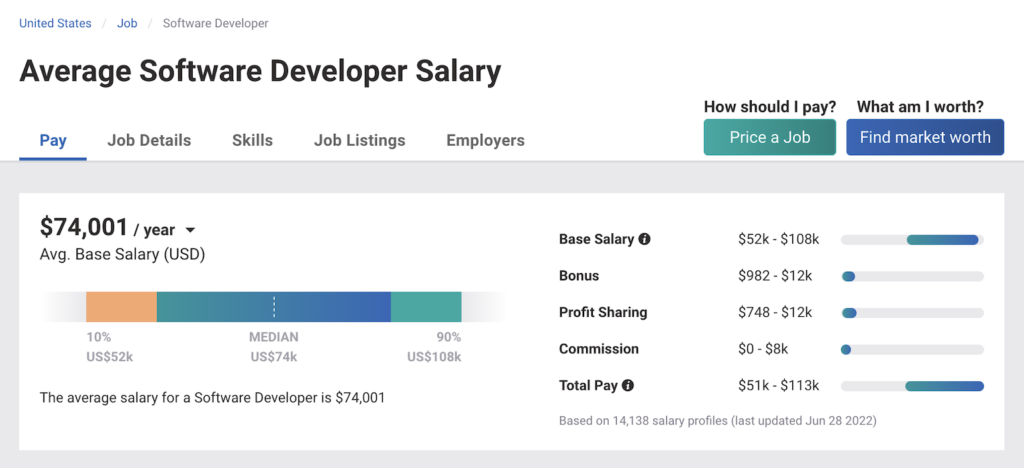Offshore Software Development: Affordable Solutions for Expanding Companies
Wiki Article
Committed Developers vs. In-House Teams: Which Is Right for You?
The choice between using committed programmers and maintaining an internal group is a significant one that can impact the trajectory of your tasks and total company approach. Dedicated developers offer a degree of adaptability and customized proficiency that can be useful for specific, temporary campaigns. On the other hand, internal teams add to a cohesive company culture and a nuanced understanding of long-term objectives. By checking out critical factors such as spending plan, task extent, and preferred control, you can much better establish which strategy lines up with your business requirements. Nevertheless, the ramifications of this option expand past instant end results-- consider the more comprehensive effect on your service landscape.Comprehending Dedicated Developers
The expanding demand for specialized abilities in the tech industry has actually led to the development of specialized developers as a sensible option for lots of organizations. These experts are commonly contracted on a project basis, allowing business to utilize certain expertise without the lasting commitment related to full time hires. Committed developers are typically ingrained within a client's team, offering versatility and scalability to meet project requirements.This design allows companies to access a global ability pool, which is specifically helpful in a rapidly progressing technical landscape. Dedicated designers can be sourced from various geographical places, guaranteeing that companies can find the best ability set at competitive prices. They often bring a wealth of experience and expertise, having worked on varied jobs throughout various markets.
In addition, devoted developers can concentrate exclusively on the jobs at hand, improving efficiency and efficiency. They are equipped to incorporate effortlessly into existing process, collaborating closely with in-house teams to attain job goals. This strategy not just reduces the burden of employment and training but additionally permits organizations to continue to be active, adapting swiftly to changing market needs and technical developments.
Advantages of In-House Teams

Additionally, in-house teams often tend to have a deeper understanding of the business's goal, values, and goals. This positioning can boost worker involvement and motivation, as team participants feel extra attached to their work and the company's success. Furthermore, having a devoted internal team permits for far better placement of approaches and goals, as these members are continually concentrated on the business's concerns.
Internal teams likewise promote quicker decision-making processes, as they can react much more rapidly to obstacles and adjustments. The recognized relationships and knowledge with firm procedures permit structured process and minimized miscommunication. Ultimately, the combination of a natural society, alignment with business objectives, and efficient interaction makes internal groups a beneficial property for many organizations, particularly those looking to grow long-lasting growth and development.
Expense Factors To Consider
When assessing cost considerations, both internal teams and specialized designers present distinct financial implications for companies. Involving dedicated developers generally involves a pay-per-project or per hour price version, which can be cost-efficient for services with varying job needs. This approach permits versatility in scaling resources up or down, ensuring that firms only pay for the solutions they need.On the other hand, in-house groups involve fixed prices, including salaries, benefits, and overhead costs such as workplace and tools. While this design offers higher control and prompt accessibility of resources, it might lead to greater long-lasting expenses, especially if the work does not warrant a full-time team.
Moreover, firms should offshore software development think about the surprise costs linked with employment and training of in-house employees, which can even more stress spending plans. In many cases, the time and resources invested in handling an internal group can interfere with the organization's core organization purposes.

Project Administration and Versatility
Task monitoring and versatility are crucial factors that affect the option between internal groups and devoted programmers. Dedicated groups often have actually established procedures for managing jobs properly, leveraging certain methods like Agile or Scrum, which assist in iterative progression and flexibility.
Inevitably, the selection in between in-house groups and dedicated programmers pivots on the desired level of versatility and the details project management needs. Firms should evaluate their functional characteristics, job complexity, and source accessibility to figure out which alternative lines up ideal with their strategic goals.
Making the Right Selection
Choosing the ideal advancement approach-- dedicated programmers or in-house groups-- calls for a cautious evaluation of various elements that align with a business's strategic objectives. On the other hand, in-house teams can supply much better connection and assimilation with existing employees.Next, examine your budget. Dedicated programmers often provide an economical service for temporary projects, while in-house teams might incur greater long-lasting expenses due to salaries, advantages, and overhead prices. Evaluate the level of control and cooperation preferred; internal groups commonly foster stronger communication and alignment with firm society.
If immediate results are essential, specialized programmers can be onboarded swiftly, whereas developing an internal group takes time for recruitment and training. If continuous advancement is vital, investing in an internal group might generate far better returns over time.
Conclusion
In final thought, the choice in between devoted developers and in-house teams depends upon task requirements and organizational objectives. Devoted developers supply flexibility and specialized competence, making them appropriate for temporary campaigns. Conversely, in-house teams grow a natural society and much deeper positioning with lasting goals. Cautious examination of spending plan restraints, project timelines, and desired control levels is crucial for figuring out one of the most suitable technique, making certain alignment with calculated concerns and operational effectiveness.The choice in between utilizing devoted developers and keeping an internal team is a substantial one that can influence the trajectory of your projects and general service technique.Task administration and versatility are important aspects that affect the choice between committed developers and internal groups. offshore software development.In contrast, in-house groups may stand out in keeping a regular task management structure due to their familiarity with the company's society and lasting objectives. Committed designers often offer a cost-effective service for short-term projects, while internal teams may sustain greater lasting costs due to salaries, advantages, and overhead prices.In conclusion, the choice between dedicated programmers and internal groups hinges on job requirements and business goals
Report this wiki page